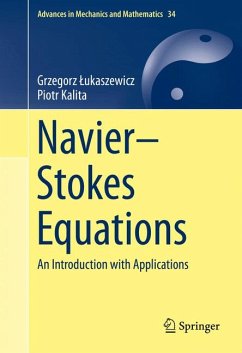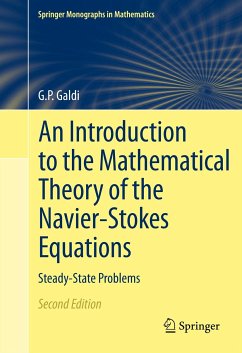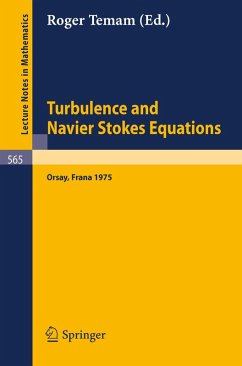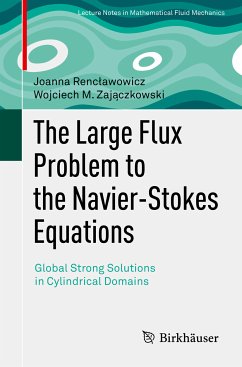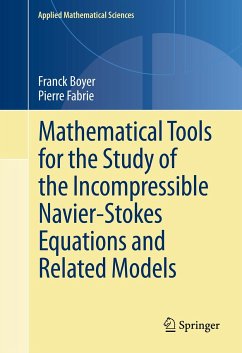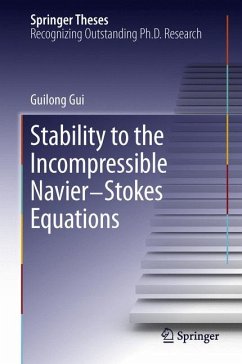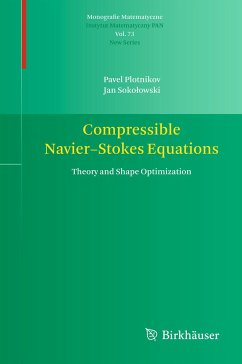![Navier-Stokes Equations on R3 × [0, T] (eBook, PDF) Navier-Stokes Equations on R3 × [0, T] (eBook, PDF)](https://bilder.buecher.de/produkte/46/46929/46929202z.jpg)
Navier-Stokes Equations on R3 × [0, T] (eBook, PDF)
Versandkostenfrei!
Sofort per Download lieferbar
80,95 €
inkl. MwSt.
Weitere Ausgaben:

PAYBACK Punkte
40 °P sammeln!
In this monograph, leading researchers in the world of numerical analysis, partial differential equations, and hard computational problems study the properties of solutions of the Navier-Stokes partial differential equations on (x, y, z, t) ¿ R3 × [0, T]. Initially converting the PDE to a system of integral equations, the authors then describe spaces A of analytic functions that house solutions of this equation, and show that these spaces of analytic functions are dense in the spaces S of rapidly decreasing and infinitely differentiable functions. This method benefits from the following adva...
In this monograph, leading researchers in the world of numerical analysis, partial differential equations, and hard computational problems study the properties of solutions of the Navier-Stokes partial differential equations on (x, y, z, t) ¿ R3 × [0, T]. Initially converting the PDE to a system of integral equations, the authors then describe spaces A of analytic functions that house solutions of this equation, and show that these spaces of analytic functions are dense in the spaces S of rapidly decreasing and infinitely differentiable functions. This method benefits from the following advantages:
Following the proofs of denseness, the authors prove the existence of a solution of the integral equations in the space of functions A n R3 × [0, T], and provide an explicit novel algorithm based on Sinc approximation and Picard-like iteration for computing the solution. Additionally, the authors include appendices that provide a custom Mathematica program for computing solutions based on the explicit algorithmic approximation procedure, and which supply explicit illustrations of these computed solutions.
- The functions of S are nearly always conceptual rather than explicit
- Initial and boundary conditions of solutions of PDE are usually drawn from the applied sciences, and as such, they are nearly always piece-wise analytic, and in this case, the solutions have the same properties
- When methods of approximation are applied to functions of A they converge at an exponential rate, whereas methods of approximation applied to the functions of S converge only at a polynomial rate
- Enables sharper bounds on the solution enabling easier existence proofs, and a more accurate and more efficient method of solution, including accurate error bounds
Following the proofs of denseness, the authors prove the existence of a solution of the integral equations in the space of functions A n R3 × [0, T], and provide an explicit novel algorithm based on Sinc approximation and Picard-like iteration for computing the solution. Additionally, the authors include appendices that provide a custom Mathematica program for computing solutions based on the explicit algorithmic approximation procedure, and which supply explicit illustrations of these computed solutions.
Dieser Download kann aus rechtlichen Gründen nur mit Rechnungsadresse in A, B, BG, CY, CZ, D, DK, EW, E, FIN, F, GR, HR, H, IRL, I, LT, L, LR, M, NL, PL, P, R, S, SLO, SK ausgeliefert werden.




